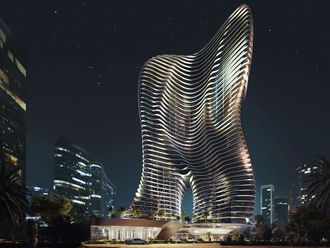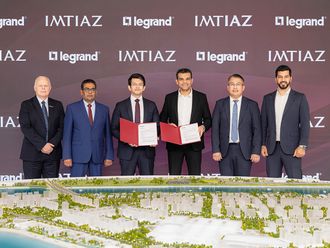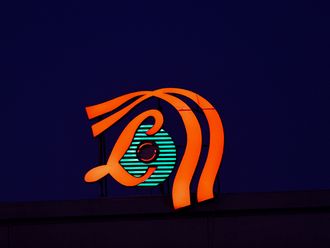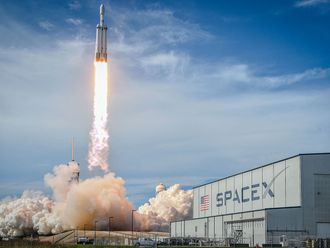Dubai: The Iraqi government is in close talks with UAE developers, including Emaar Properties, to develop properties that will help the war-torn country meet its housing demand, officials said.
According to the Iraqi Ministry of Construction and Housing (MoCH), the country’s federal budget is estimated to reach $120 billion (Dh440.76 billion) in 2013, increasing to $200 billion by 2015, highlighting a concerted effort to improve infrastructure and open up investment opportunities.
Iraqi government officials said they are close to signing a deal with Emaar Properties — developer of Burj Khalifa, the world’s tallest tower.
“Hopefully, we are going to make an announcement by tomorrow or day after once everything is finalised with them [Emaar Properties],” Thir Al Dabbagh, Minister Advisor to MoCH, told Gulf News when asked about a possible deal with Emaar.
Ahmad Thani Al Matroushi, managing director of Emaar Properties, who was at the Iraq government stand at Cityscape, declined to comment on the development.
Diversifying markets
Emaar, which has a limited land bank in Dubai, has been looking at international markets for project development. It has a sizeable footprint in Saudi Arabia, Morocco and India where a number of projects are progressing well.
“Iraq needs 3 million housing units within the next three years, of which 500,000 will be built by the Iraqi government. The rest we want to be built through private participation,” Khalid Sulaiman, Minister Advisor, to MoCH, told Gulf News.
“With each unit costing $100,000, we will need about $300 billion in investment into Iraq’s housing sector alone.”
However, for Iraq, money is not a problem, Sulaiman says. “Iraq is a rich country. We are currently pumping three million barrels of oil per day which will be doubled in three years,” he said. “So, funding is not an issue. However, we are seeking project management expertise of Emirati developers, such as Emaar Properties, that could help us in delivering some good master-planned mixed use projects that Iraq will need.
“Besides, we want private developers to benefit from the opportunities in our country. Iraq is the next best thing that is happening in the Arab world. The security situation is better now. International companies are entering Baghdad and looking for opportunities.”
The Iraq government signed agreements with private developers to build 2,000 homes with an investment outlay of $365 million last month.
Sulaiman said Turkish investors have already committed $9 billion in projects in Iraq.
Inroads in Kurdistan
In the UAE, a number of developers have already made inroads into northern Iraq. Damac Properties, Crescent Petroleum and Rotana Hotels have already entered Kurdistan with development and management activities. However, the big-ticket developers are yet to commit substantial investment, primarily owing to the security situation.
The Iraq MoCH is working on $10 billion worth of construction projects over the next five years, including the $4 billion Expressway No.2, which upon completion will connect the south and middle of Iraq with the north of the country, before ultimately joining with Syria and Turkey.
“Due to ongoing business trends and the transition to a market economy after 2003, Iraq has seen significant changes to regulations and the governing of economic activities,” Iraqi Minister of Construction and Housing Mohammad Darraji said in a statement.
“New laws to promote fresh investment and drive economic growth are currently being implemented, and this transition will promote the rapid restructuring of our economy.”
Additionally, he said that an infrastructure projects bill amounting to $37 billion on a deferred payment basis is being considered by the Iraqi parliament to finance projects in electricity, health, education, housing, water and sewerage and the environment.











